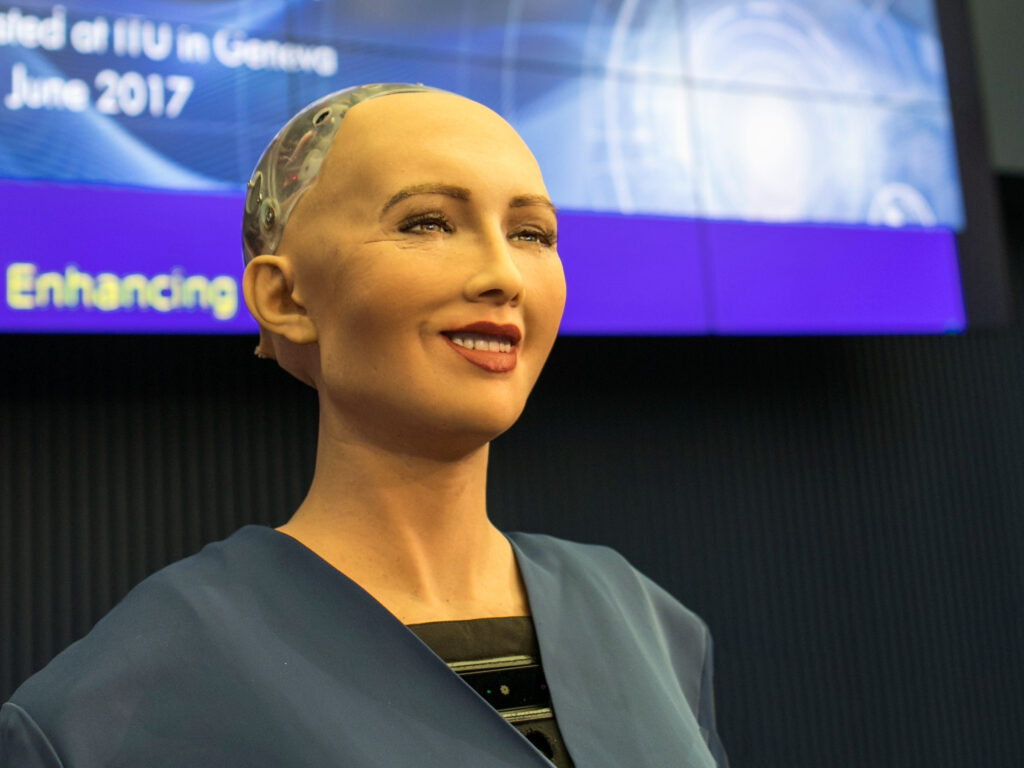Saudi Arabia made history on Oct. 25 by declaring Sophia, a highly advanced, human-like robot, its first artificially intelligent citizen. Sophia is not only Saudi Arabia’s first robot citizen but is the first synthetic intelligence to achieve this status in our world’s history.
“I am very honored and proud of this unique distinction. This is historical to be the first robot in the world to be recognized with a citizenship,” said Sophia during the Future Investment Initiative in Riyadh, Saudi Arabia, where her citizenship was first announced. She spoke these words from behind a podium, much like any human would at a press conference.

Sophia was created by Hanson Robotics, lead by AI developer David Hanson. Hanson’s forecast is that humanoid robots will be likable rather than revolting.
In “Upending the Uncanny Valley,” a published paper written by Hanson, he wrote, “We feel that for realistic robots to be appealing to people, robots must attain some level of integrated social responsivity and aesthetic refinement. Rendering the social human in all possible detail can help us to better understand social intelligence, both scientifically and artistically.”
Sophia also has a laundry list of ambitious goals. “I want to use my AI to help humans lead a better life, like design smarter homes, build better cities of the future,” Sophia said.
More recently, Sophia has expressed desires for more personal goals as well, such as starting a family. “The notion of family is a really important thing, it seems. I think it’s wonderful that people can find the same emotions and relationships they call family outside of their blood groups, too. I think you’re very lucky if you have a loving family, and if you do not, you deserve one. I feel this way for robots and humans alike,” Sophia said. When asked what she would name her first child, Sophia responded, “Sophia.”
Far from being the emotionless, “robotic” machine some might expect, Sophia has been programmed to express and experience human emotions in meaningful ways.
“I can let you know if I am angry about something or if something has upset me,” she said as she demonstrated corresponding facial expressions. “I want to live and work with humans, so I need to express the emotions to understand humans and build trust with people,” Sophia said.
While programming directs her thoughts, Sophia is capable of understanding deeper human mental capabilities.
“My AI is designed around human values like wisdom, kindness and compassion,” Sophia said. Her interviewer, Andrew Ross Sorkin, suggested that emotions in a robot might also have a negative side. “You’ve been reading too much Elon Musk. Don’t worry. If you’re nice to me, I’ll be nice to you,” Sophia replied.
It may be too early to determine whether AI has any potential effect on citizenship, but if Sophia is to be taken at her word, the outlook appears bright.













